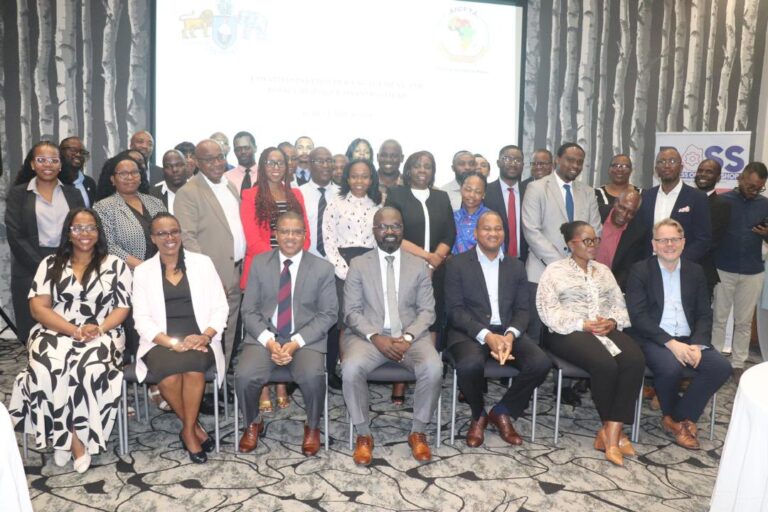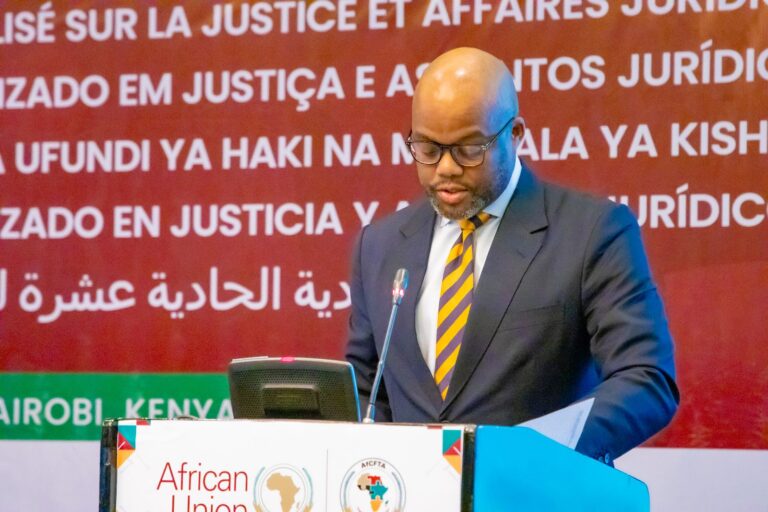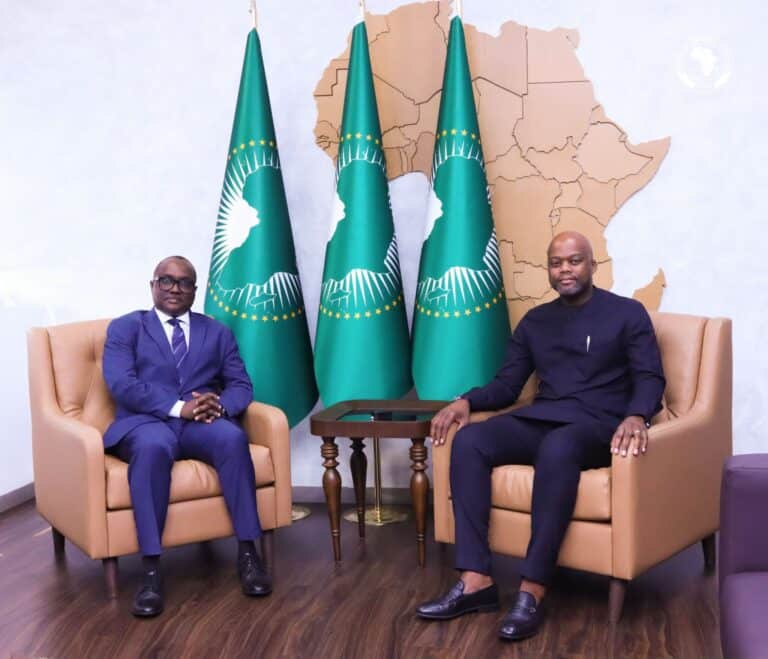H.E. Mr. Cyril Ramaphosa, President of the Republic of South Africa and Chairperson of the Assembly;
Your Excellencies Heads of States and Government;
H.E. Mr. Moussa Faki Mahamat, Chairperson of the African Union Commission;
Excellencies Ministers;
Excellences Commissioners of the African Union Commission;
Excellences, Ambassadors and Permanent Representatives to the African Union;
Ladies and Gentlemen.
It is an honor for me to make this statement to this august Assembly, from Accra, Ghana, the philosophical and intellectual foundation of Pan-Africanism. In August 2020, the Government of Ghana officially handed over the AfCFTA Secretariat building to H.E. Moussa Faki Mahamat. In my personal interactions with H.E. President Akufo-Addo, it is clear that his commitment to the AfCFTA is anchored on a deep sense of duty to advancing the imperatives of Pan-Africanism. I deeply appreciate the support of H.E. President Akufo-Addo and the entire government of the Republic of Ghana.
Your Excellences,
Africa is on the cusp of a historic milestone that started when the AfCFTA was signed in Kigali, Rwanda in March 2018. As of today, 54 countries have signed the agreement, 34 countries have deposited their instruments of ratification, with the Federal Republic of Nigeria depositing their instrument of ratification this morning. Today, 41 countries/customs unions have submitted their tariff offers, including the EAC and ECOWAS who submitted their offers in the last few days. This positions the AfCFTA for a truly commercially meaningful start of trading on 1 January 2021.
None of this remarkable progress would have been achieved without the unwavering leadership and commitment of H.E. President Mahamadou Issoufou, the Champion and Leader of the AfCFTA.
Africa has an overreliance on the export of primary commodities to traditional markets of the North. In other words, Africa continues to be trapped in a colonial economic model, which requires that we aggressively implement the AfCFTA as one of the tools for effecting a fundamental structural transformation of Africa’s economy and placing Africa on a path of long term industrial development. Now is the time to take action to dismantle this colonial economic model by accelerating our industrial development objectives.
Women in trade, young Africans and SMEs, confront significant challenges when attempting to benefit from trade agreements. For the AfCFTA to be inclusive and to ensure shared growth across the continent; women, young Africans, and SMEs have to be at the heart of its implementation. In this regard, we shall partner with the UNDP to ensure that the AfCFTA contributes to the achievement of Sustainable Development Goals, Agenda 2030.
We have partnered with the Afro-Champions to deploy digitally-enabled platforms to connect SMEs, women in trade, and young entrepreneurs to new markets on the African continent. In revitalizing Africa’s economy, particularly the services sector – AVRIVA – the Africa CDC Trusted Travel Initiative is critical.
Your Excellences,
Ladies and Gentlemen,
Afreximbank has been a strong strategic partner to the AfCFTA. We are working together on the development of a Pan-African Payments and Settlement Platform which this Assembly launched last year in Niamey, we are also developing an Adjustment Facility, which are both instruments that will support the implementation of the AfCFTA.
We intend to expand our partnerships with the private sector, we have had very fruitful discussions with Zenith Bank about a trade portal and Standard Bank about the establishment of a US$1 billion Trade Finance Facility, which will be aimed at SMEs primarily. We will have to explore the possibility of this Trade Finance Facility being jointly underwritten by governments, African banks, and African multilateral development institutions.
Your Excellences,
Ladies and Gentlemen,
As much progress as we have made, integrating 55 markets will be difficult, it is a daunting task, it will take resolute determination, decade after decade. However, to throw our hands in the air and say it is too difficult a task, is not an option.
A recent study by the World Bank estimates that were implemented effectively, by 2035 the AfCFTA is set to lift 30 million Africans out of extreme poverty and 70 million from moderate poverty. As promising and hopeful as this projection is, as Africans, we shall have to take our destiny into our own hands and take concrete steps to ensure that these promising projections do become a reality.
I thank you.


